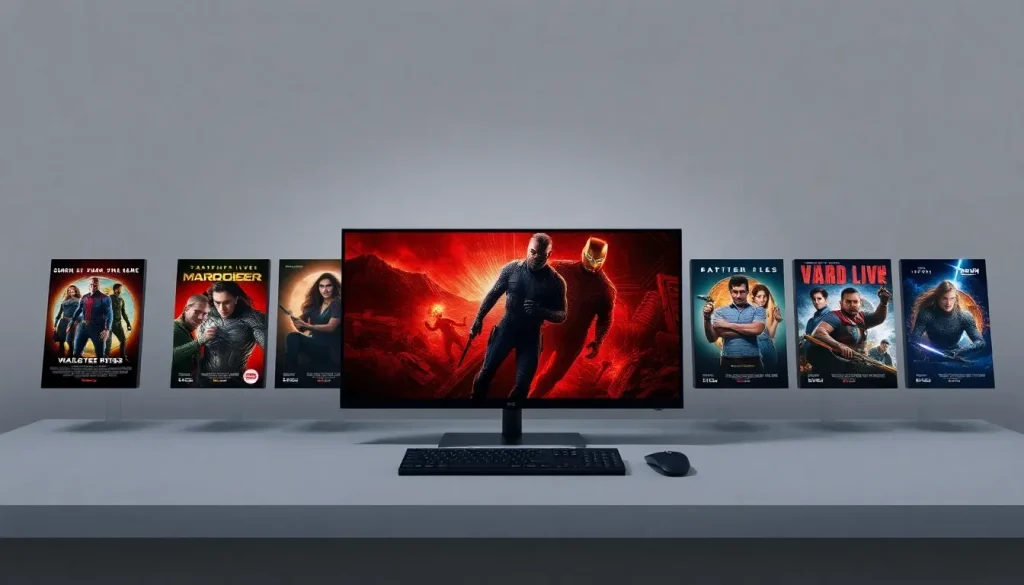Microsoft halts sales of movies and TV shows; previous purchases intact

In a significant shift for digital media consumption, Microsoft has announced the closure of its Movies & TV storefront on both Windows and Xbox platforms. This decision marks a major transition in the way Microsoft engages with video content, as it moves away from direct sales and rentals. However, if you are one of the users who has purchased content through these platforms, rest assured that your previously acquired movies and TV shows will remain accessible.
The decision to discontinue this service reflects broader trends in the entertainment industry, where streaming services have become the dominant mode of consumption. As major film releases increasingly become available for streaming shortly after their theatrical run, Microsoft’s strategy appears more outdated. Below, we delve into the implications of this change and what users can expect moving forward.
Closure of the Movies & TV storefront
Microsoft's announcement indicates a definitive end to its sales of video content. This decision is part of a larger trend within the company, which previously stopped selling music through its Groove Music service back in 2017. The closing of this storefront is not entirely surprising, given the rise of subscription-based streaming services that have captivated audiences with vast libraries of content.
Impact on existing purchases
For users who have purchased movies and TV shows through Microsoft, there is no need for alarm. As stated in a recently published support document, users will still have access to their previously purchased titles. These will remain available on Microsoft’s servers, ensuring that users can continue to enjoy their content through the Movies & TV app.
- Access to previous purchases will remain intact.
- Movies and shows can be played through the Movies & TV app on Windows PCs and Xbox devices.
- Content will play back in high resolution, maintaining its visual quality.
The rise of streaming services
One of the driving forces behind Microsoft’s decision is the rapid ascent of streaming services. Platforms like Netflix, Amazon Prime Video, and Disney+ have reshaped how audiences consume media, offering instant access to a broad array of titles without the need for individual purchases. Furthermore, many new movie releases are now available for streaming just weeks after their theatrical debut, significantly diminishing the appeal of traditional rental and purchase models.
Recent reports suggest that upcoming blockbuster releases, such as the new Superman film, could become available on streaming platforms as soon as 45 days post-release. This shift favors convenience and immediacy, catering to a consumer base that increasingly prefers on-demand viewing.
Alternatives for digital media consumption
With Microsoft’s storefront closing, users may wonder what alternatives exist for managing their digital movie collections. One prominent option is Movies Anywhere. This service allows users to aggregate purchased content from various platforms, providing a centralized hub for managing all digital movie libraries.
- Movies Anywhere: Aggregates titles from multiple stores for easier access.
- Streaming subscriptions: Consider services that offer extensive libraries for a monthly fee.
- Digital rental services: Platforms like Amazon Prime Video and Google Play still offer rentals for newer releases.
While Microsoft no longer provides a dedicated platform for purchasing movies and TV shows, users can still access their previously bought titles through alternative means, ensuring they do not lose access to their digital library.
Concerns over digital content ownership
As the digital landscape evolves, concerns about ownership of digital content have come to the forefront. Users may feel uneasy about the long-term accessibility of their purchased titles, especially after witnessing Microsoft’s past decisions regarding music content. When Microsoft transitioned its licensed music purchases to Spotify, users were left unable to download their music collections.
This concern is compounded by the current inability to download movies purchased through Microsoft’s platforms. As a result, many users are left relying on the company’s continued support to ensure their media remains accessible in the future.
The future of digital content sales
The closure of Microsoft's Movies & TV storefront raises pertinent questions about the future of digital content sales. With a growing preference for subscription models, it seems likely that other companies may follow suit, further diminishing direct sales options. This trend might even prompt a reevaluation of how digital content is marketed and consumed.
Some industry experts predict that the future may hold a hybrid model, where users pay for subscriptions but can still purchase select titles that hold cultural significance or are part of a franchise. Such a model could provide the flexibility that consumers desire while still supporting content creators.
Conclusion
In summary, Microsoft’s decision to close its Movies & TV storefront signifies a broader shift in the entertainment industry towards streaming and subscription services. While users can still access their previously purchased movies and TV shows, the closure raises questions about the future of digital content ownership and sales. As the landscape continues to evolve, consumers must adapt to these changes and seek alternatives that best suit their viewing habits.
For more insights on this topic, check out this video:




Leave a Reply